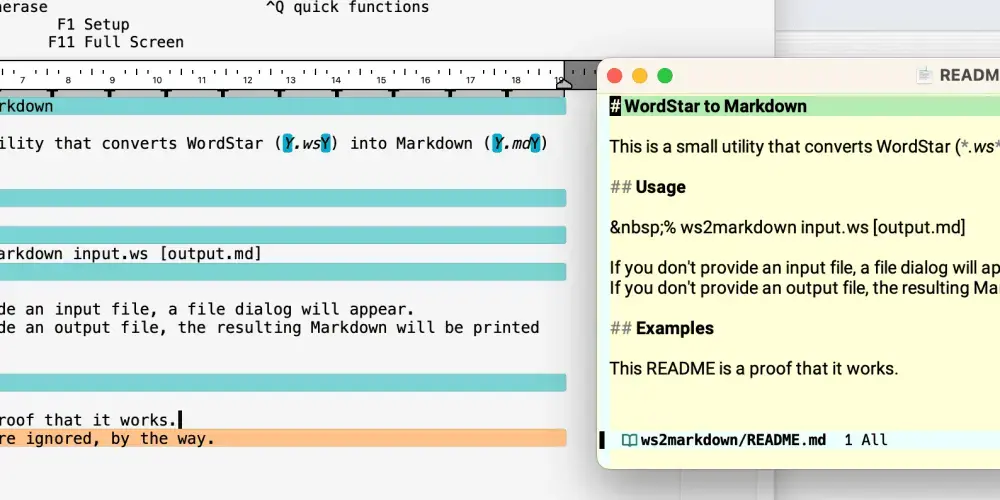rhabarba
Runterwählen ist kein Gegenargument.
[Verifying my cryptographic key: openpgp4fpr:941D456ED3A38A3B1DBEAB2BC8A2CCD4F1AE5C21]
- 9 Posts
- 44 Comments

 24·9 months ago
24·9 months agoI wonder why I don’t pay for Lemmy.

 12·11 months ago
12·11 months agodeleted by creator

 7·1 year ago
7·1 year agoGood. Vapers look like clowns with a flute.

 11·1 year ago
11·1 year agoI know, but most people won’t. :-)

 3·1 year ago
3·1 year agoOne of the reasons might be that the number of SVN hosting facilities has decreased over the past two decades.

 11·1 year ago
11·1 year agoI know, but most people are lazy these days (and self-hosting stuff in the EU has become a legal battle against every week’s new rules).

 61·1 year ago
61·1 year agoOh, come on. It wasn’t that bad! At least it granted (and still grants) the freedom of choosing which VCS shall make your day harder than necessary.

 5·1 year ago
5·1 year agoCodeberg is supposedly located in the EU while not requiring self-hosting, maybe that’s why.

 51·1 year ago
51·1 year agoAt least they’re less obvious about it.

 203·1 year ago
203·1 year agothe vast amount of projects hosted there definitely won’t ever move away.
That’s what they said about Sourceforge though.

 2754·1 year ago
2754·1 year agoGood news. Hopefully this will help to finally break the de facto monopoly of Microsoft’s GitHub and bring the distributed aspect of Git - away from gatekeeper platforms - back into the foreground.

 11·1 year ago
11·1 year agoTouché.

 1·1 year ago
1·1 year agoVirtually every website out there today uses Javascript.
Most of those work without it.
Lemmy uses Javascript.
Lemmy is one of several ActivityPub-capable applications. You do not need to use Lemmy inside a web browser in order to participate here. In fact, you don’t even need to use a web browser.
The Web generally does not function without Javascript today.
I disagree. Some websites (with lazy developers) work less well without JavaScript. You’ll gain less annoyances (no JS = no pop-ups and no sophisticated anti-adblock techniques), more speed, less energy consumption, less potential security risks. You’ll lose… not really much. “Web applications” (usually worse, slower and less reliable than installed software), a couple of websites which are very focused on providing effects over contents - sounds like a fair deal to me, but again, YMMV.
Yes, there will never be absolute security. If it runs on a computer, it most likely has security flaws.

 12·1 year ago
12·1 year agoAre you advocating for some form of isolation? If so, what?
Kernel sandboxing. I mean, breaking out of browser “sandboxes” is a game these days.
Any site you browse to – including those not labeled as such – could well expose you to that vulnerability.
Which is why using the web without JavaScript is a security measurement which I strongly recommend to enable. Sure, many sites will be “less interactive” then, but I’m afraid that it is the only solution. For the usually: rather small number of websites which you absolutely need to use with JavaScript enabled (do you, really?), a separate browser inside a container (or VM) would be a good option. I admit that this is not the most comfortable setup, but I really prefer to be safe than sorry. YMMV, but you asked.

 12·1 year ago
12·1 year agoI don’t think that “fun” should be the only relevant aspect, especially not with network-facing applications managing personal data.

 42·1 year ago
42·1 year agoCompared to native platforms.

 21·1 year ago
21·1 year agoYes, because browser sandboxes will NEVER be as secure as kernel sandboxes.

 1·1 year ago
1·1 year ago“PWAs” are still less efficient than native apps. There are many disadvantages - and one advantage (“it’s easy to make one”).






The content posted here has no obvious license. I wonder if an administrator could just put any license of his choice on your posts.